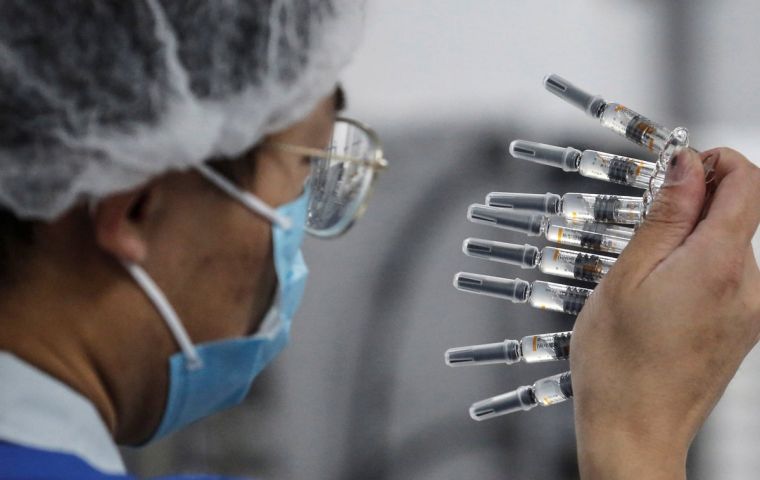MercoPress. South Atlantic News Agency
Delays in launching an inoculation program in Brazil, threatens the economic recovery
 Inoculations have yet to begin in Latin America’s largest country and health regulator Anvisa has not yet approved any vaccine for use.
Inoculations have yet to begin in Latin America’s largest country and health regulator Anvisa has not yet approved any vaccine for use.  Moody’s expects Brazil’s economy to grow by 3.3% this year, following an anticipated 5.7% contraction last year
Moody’s expects Brazil’s economy to grow by 3.3% this year, following an anticipated 5.7% contraction last year The risks to an expected economy recovery in Brazil during 2021 are increasing as delays in rolling out a vaccine program against coronavirus continues to be delayed, according to Moody's rating agency.
Brazil’s government is under pressure amid the slow pace of the country’s vaccine rollout. Inoculations have yet to begin in Latin America’s largest country and health regulator Anvisa has not yet approved any vaccine for use.
In a virtual press conference addressing Brazil’s economic outlook, Moody's Samar Maziad said a nationwide vaccine will limit the scope for additional social distancing measures and business closures, thereby supporting the economy.
“To the extent that we see delays, that will increase the downside risk to the recovery,” Maziad said.
Moody’s expects Brazil’s economy to grow by 3.3% this year, following an anticipated 5.7% contraction last year, with most of the rebound attributed to base effects rather than a self-sustaining recovery.
Maziad also said that the end of emergency government aid to millions of families, worth almost 300 billion reais (US$ 56 billion) last year and one of the most generous income transfer programs in the world as a share of the economy, could slow the recovery and perhaps fuel social unrest.
“The withdrawal of aid poses some risk to social unrest ... (and) with high unemployment, there is some risks (to the economy). But not elevated risk,” she said. “The (main) risks remain on the fiscal side.”
Maziad said that abandoning the government’s spending cap, its key fiscal rule and anchor for market credibility that it is committed to reducing the debt and deficit, would have negative implications for Brazil’s sovereign credit profile.
Crisis-fighting spending last year blew a record hole in the public finances, threatening the cap which limits growth in expenditure to the rate of inflation. Many analysts say a breach at some point soon is highly likely.




Top Comments
Disclaimer & comment rulesCommenting for this story is now closed.
If you have a Facebook account, become a fan and comment on our Facebook Page!